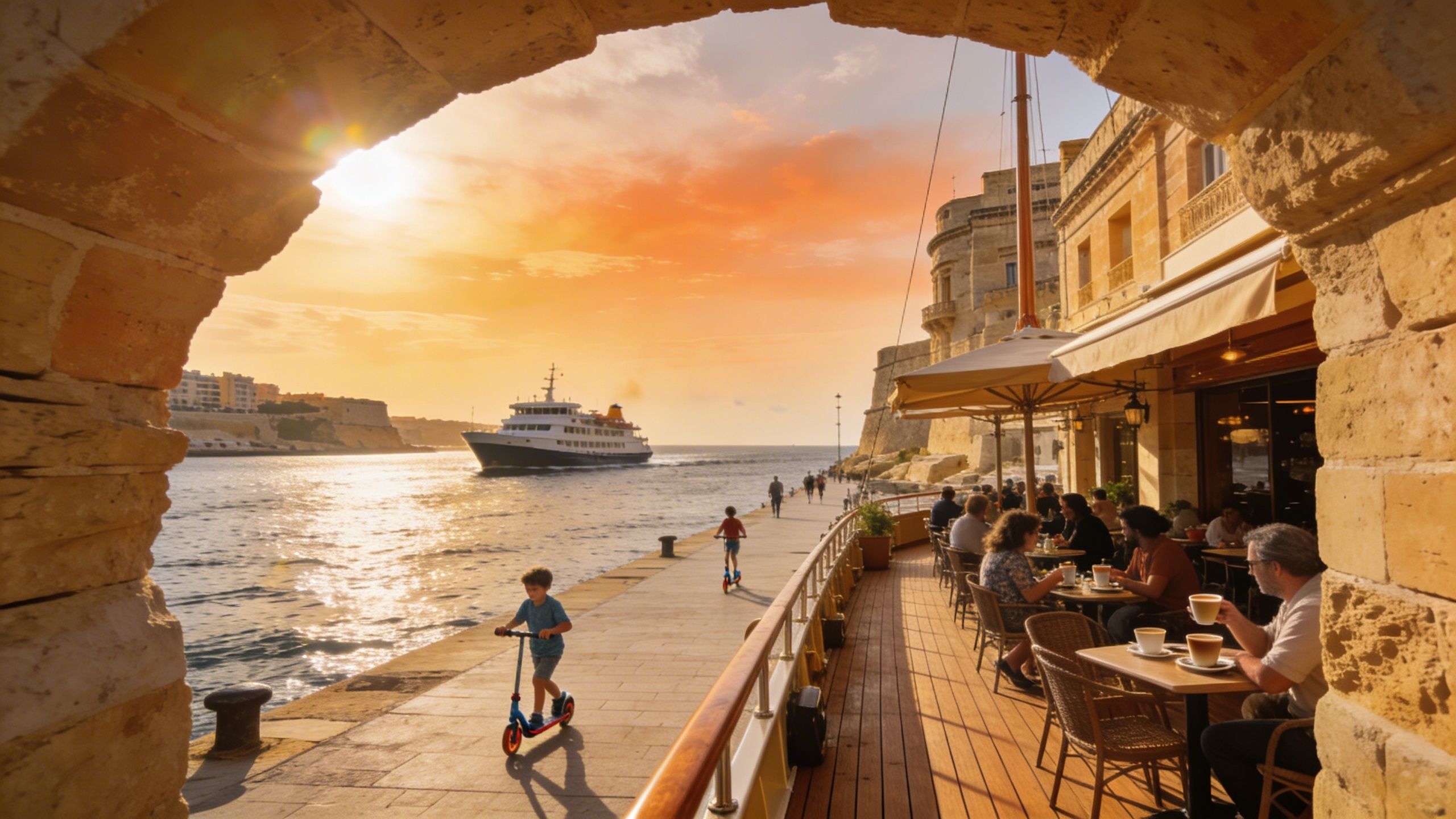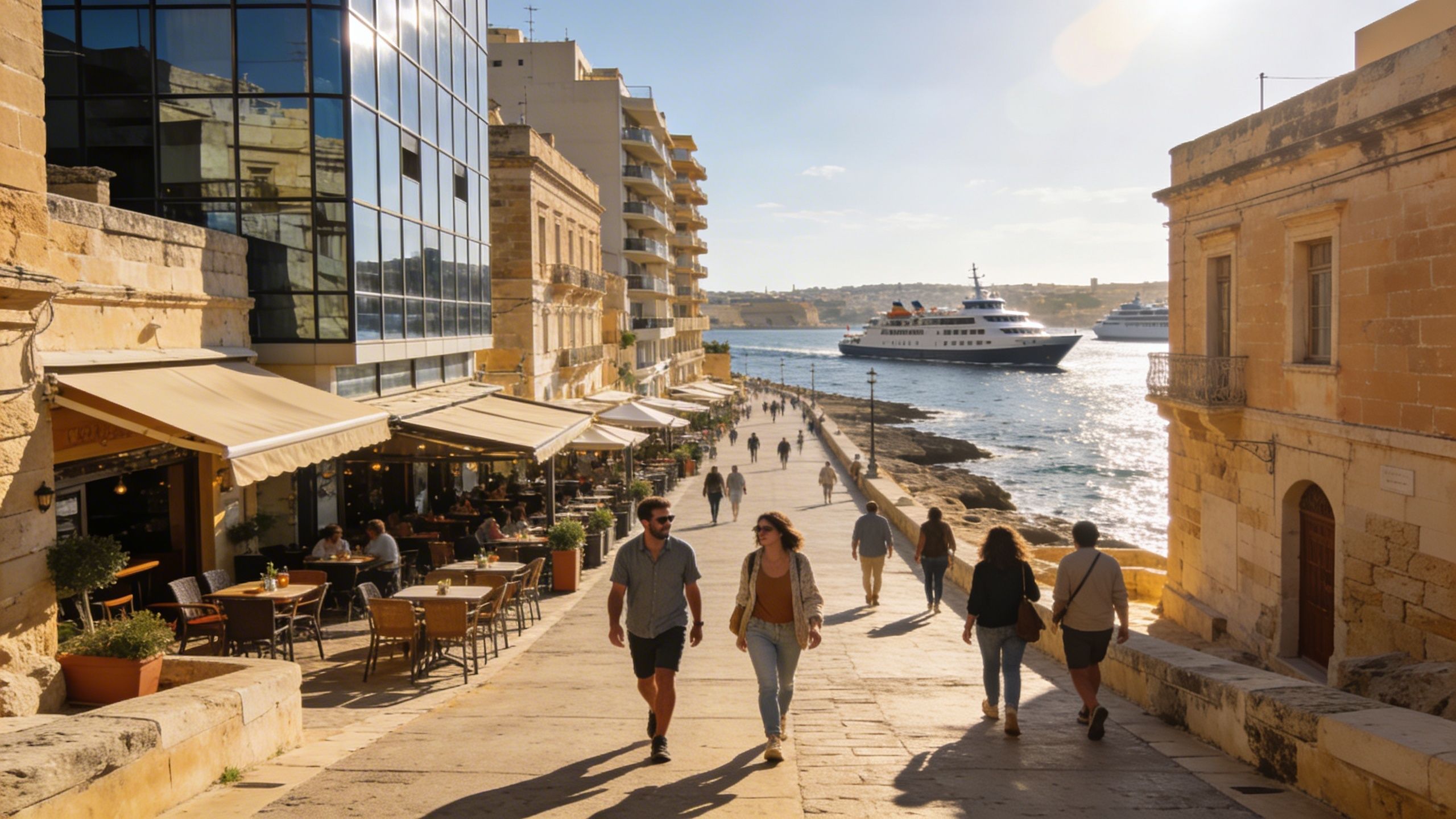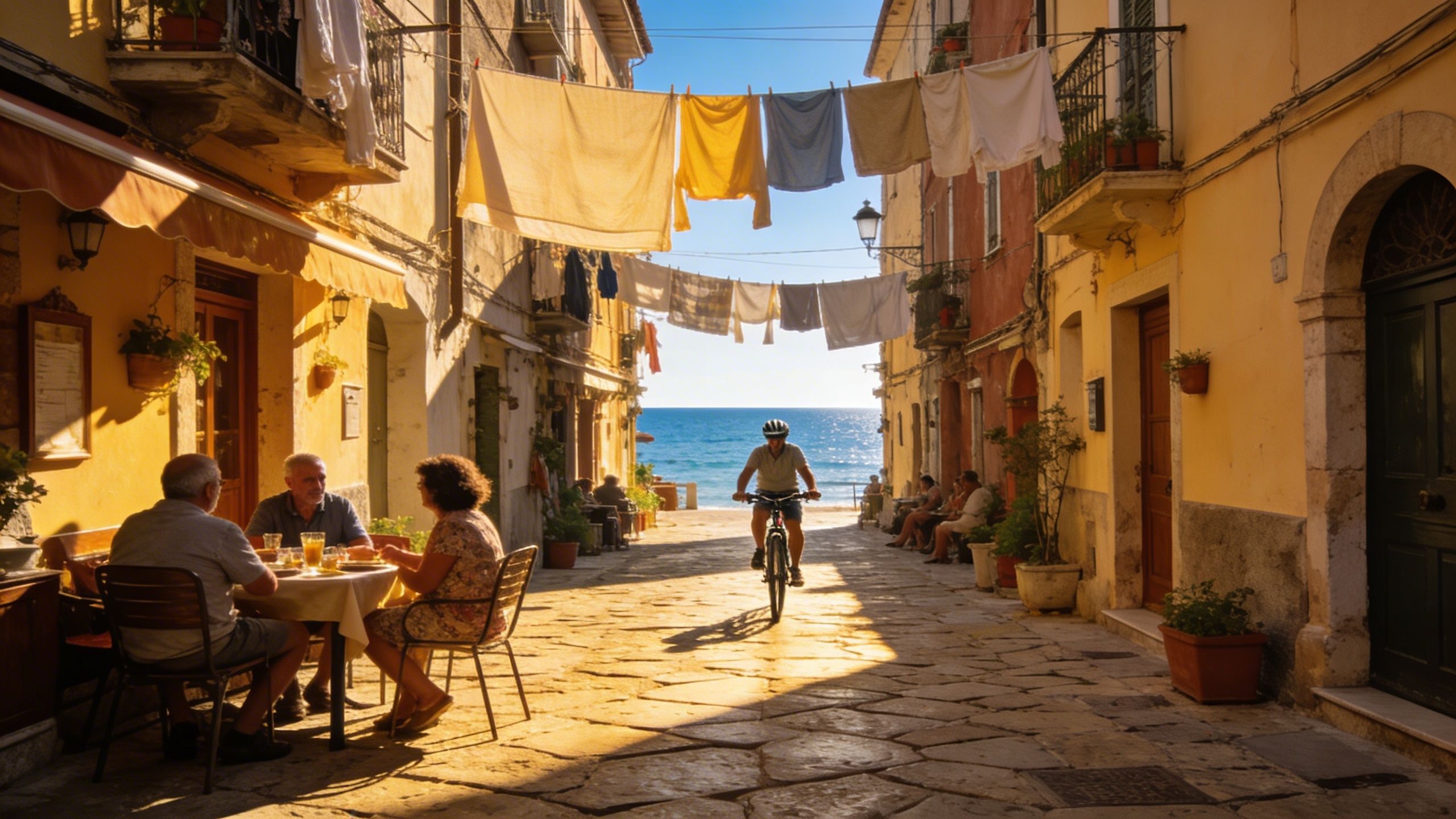Why Côte d'Azur Hill Towns Outperform the Coast
Hill towns on the Côte d'Azur offer more space, community and value than seafront hotspots — visit off‑season, check local planning and plan for changing transfer duties.
Imagine an autumn morning in a Provençal hill town: shutters cracked open to pale sunlight, a boulanger on Rue du Marché pulling warm croissants, and the Mediterranean visible like a promise beyond the pines. For many international buyers the Riviera’s coastline is the poster image — but the real, livable magic is often a few kilometres inland. Recent regional research shows demand is shifting toward hill towns and inland villages for space, community and better value. See Savills’ Riviera analysis for context.
Living the Riviera — beyond the postcard
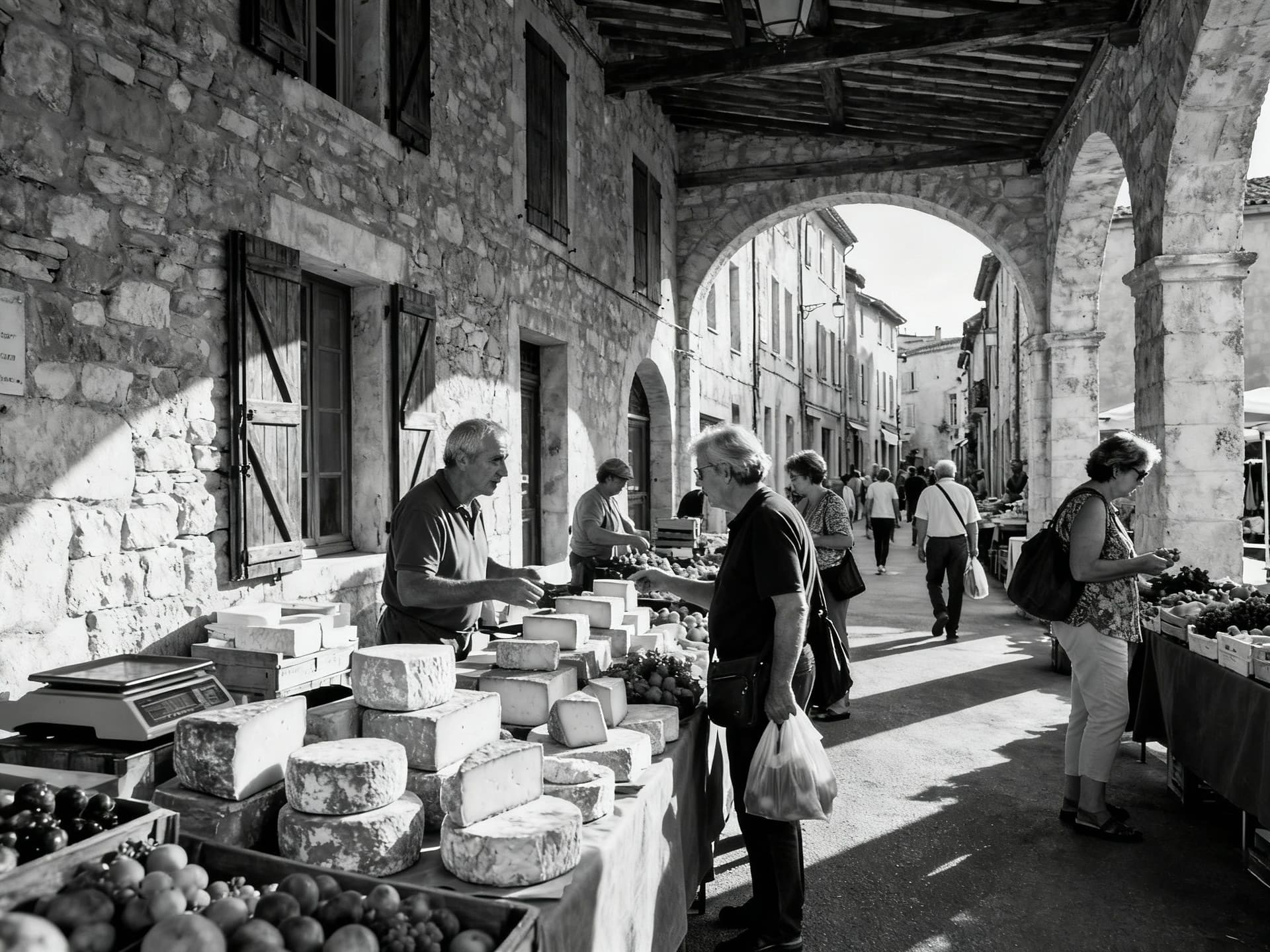
Life here is governed by daily rituals: café terraces at 09:00, mercado runs before noon, and aperitivo stretches the evening. Prices and market activity have restarted a gentle climb in 2025, pushing some buyers away from tight coastal neighbourhoods and toward hill towns where daily life feels more local and less staged. The payoff is quieter streets, larger homes and a community that functions year-round rather than purely seasonally. For market context, see Le Monde’s recent coverage of France’s housing rebound.
Mougins, Valbonne, Saint‑Paul‑de‑Vence — the hill‑town advantage
Walk the narrow lanes of Mougins or Valbonne and you’ll hear more French than English, meet shopkeepers who know your name, and find terraces that stay busy through winter. These towns trade a sea view for heritage stone, shady squares and larger plots. Buyers interviewed by the Financial Times note discounts of 5–10% compared with coastal hotspots — real space for gardens, cellars and restorations. That tradeoff often yields a better lived experience than a cramped seafront apartment.
Markets, meals and seasonality — how villages live
Local markets set the tempo: Valbonne’s Friday market, Mougins’ truffle-linked events, and small coastal ports with fish stalls that close in winter. The food scene is both refined and communal — chef-driven restaurants sit alongside family-owned cafes. Savills notes international buyers remain active across the Riviera, but supply constraints on the coast have pushed renewed interest inland, where authentic seasonality translates into a more sustainable year-round life.
Provençal lifestyle highlights
Friday market at Valbonne’s Place des Arcades — fresh produce, charcuterie and local chatter.
Sunset walks above Golfe-Juan, followed by seafood at Port Vauban in Antibes.
Mougins’ village art trail and quieter cultural season outside July–August.
Making the move: the practical choices that protect the lifestyle
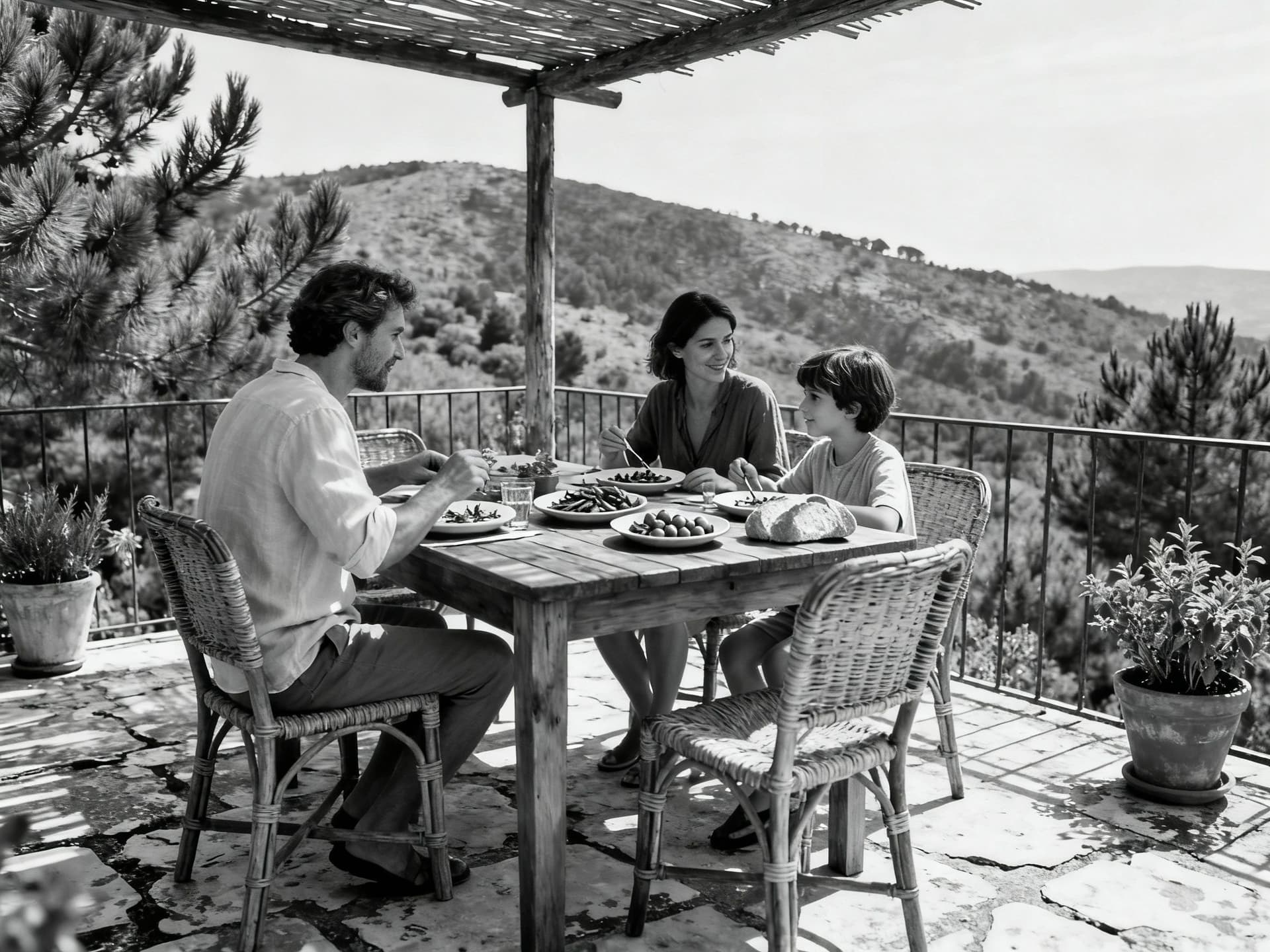
Enjoying Provençal life is straightforward — but you still need local expertise. French conveyancing, transfer duties and municipal rules shape what you can renovate, rent or register. Notaires de France lays out specific rules for non‑residents, and their fee guidance shows acquisition costs typically sit between 2–8% depending on new or resale property. Treat these costs as part of the lifestyle purchase, not an add-on.
Property styles that fit daily life
Choose a stone farmhouse if you want a garden, a restored bastide for entertaining, or a compact apartment in Valbonne for a lock-and-leave rhythm. Each type has trade-offs: older homes come with maintenance and permit needs; newer builds offer lower notaire fees and modern insulation. Decide first how you want to spend weekdays — gardening, local cafes or commuting to Aix/Antibes — then map property types to that routine.
Working with experts who preserve the lifestyle
Use an estate agent who knows municipal planning rules, a notaire familiar with non‑resident purchase forms, and a local architect for renovations in listed centres. Agencies with local roots help you spot practical red flags: homes without proper septic systems, unpermitted extensions, or restrictions tied to agricultural zones. That local knowledge keeps your idyllic mornings intact — and avoids a renovation that eats the first two years of your life there.
Move‑planning steps blending lifestyle and law
1) Visit off‑season (November–March) to feel year‑round life before any offer.
2) Commission a local notaire review and environmental check (risks: coastal erosion, nitrates).
3) Confirm municipal rules with the mairie before planning renovations or rentals.
Insider knowledge — what expats wish they’d known
Expats often tell us they underestimated the social rhythm here. Community ties form around markets, boulangeries and school gates, not glossy open‑plan showhomes. The best integrations happen when you shop locally, learn a few phrases and accept that French bureaucracy moves at its own pace. The Financial Times notes many Parisians buying second homes inland, reinforcing that living choices are as much cultural as they are financial.
Language, neighbours and daily customs
A basic command of French changes everything. Neighbours are more likely to help with a trusted plumber or pass on a municipal notice when you’ve exchanged greetings. Expect slower shop hours, long lunch breaks, and local fêtes that close main streets for a day. These are the small frictions that shape whether you own a house or truly live in it.
Long‑term lifestyle and resale realities
Department-level changes to transfer duties in 2025 (some departments raising DMTO up to 5%) affect acquisition costs and, consequently, resale pricing and yields. Factor these shifts into any 5–10 year plan. Hill towns frequently retain desirability because of protected heritage and limited new supply — that scarcity supports steady value, but liquidity is slower than on the coast. Plan for lifestyle first; expect a calm market on exit.
Conclusion — how to convert the Riviera dream into a durable life
If you want year-round Provençal life, don’t start at the Promenade des Anglais. Start in the markets and move inward. Visit in low season, hire local experts, and prioritise a property that supports the life you picture — garden, regular cafés, a walkable town centre. Agencies with regional depth will save you months of trial and error. When done well, buying here trades headline glamour for daily pleasure — and that makes the purchase both reasonable and enduring.
Danish investment specialist who relocated to Costa del Sol in 2015. Focuses on data-driven market timing and long-term value for Danish buyers.
